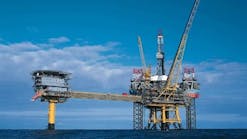In the post Iraq-war era, many expected oil prices to go down. I was not among them. In fact, I have been on record multiple times saying that oil prices would go up and even flirt with $40/bbl. I do not see any time soon that prices will go down to OPEC's professed target of $22 to $28. There are several reasons for this. First, Iraq, during the sanctions era, was not really a factor for several years. Second, there are very serious long-lasting social and political problems in at least three major producers – Russia, Venezuela, and Nigeria. Third, the biggest and by far the most controlling influence on oil markets, the US, has oil stocks that are at their lowest levels since statistics began 40 years ago.
One of the secrets for those in the know is that OPEC has little excess capacity and has not bothered to invest in any since the price collapse of 1999, the subsequent fast recovery, and on-going high prices. In the foreseeable future, it would appear OPEC countries should have no problem delivering any quantity of oil that the world economy would require. However, production capacity does not materialize magically. Countries must re-invest in exploration and production to replace naturally declining wells and to meet additional increases in demand. Contrary to frequent misconceptions by "analysts" about "lifting costs" (Saudi Arabia's are set at $2/bbl), those costs get buried in what we call the activation index; i.e., how many dollars it is and, often, corrupt systems, are some of the most expensive countries to operate in. Iraq's ongoing situation is just one of the problems. Yes, it is true that some countries could even double their current production. But they could do this only with tens of billions of dollars of new investments, after several years, and with technology that is owned only by the biggest multinationals. Here is a paradox that often bewilders observers: Low oil prices prevent re-investment; very high oil prices also prevent re-investment. Most OPEC countries, never managed for the long-term, would be all too happy to coast or even let their production capacity decline while they enjoy a large influx of new money, which they use to support social services.
But it was Russia's oil industry that crept into prominence in the world of energy in the last several years, challenging OPEC's position in a profound way. Understandably, Russia's oil resurgence has caused internal ripples of socioeconomic and political discontent. Following the collapse of the Soviet Union and the ensuing drastic reduction in the internal energy demand because of the almost total destruction of the country's heavy industry, oil production in the, now, "former" Soviet Union has plummeted to as low as 4 MMb/d. It was the Boris Yeltsin government that recognized the importance that Russia's energy resources would play in the reconstruction of Russia. Without laws in place, Russia entered the uncharted territory of privatization. Never in the history of the energy industry did such a sale occur. In 1996. oil assets went for, perhaps, 10 cents/bbl. Former communist "apparatchiks" became billionaires overnight.
None can match Mikhail Khodorkovsky, the former head of Komsomol, the communist youth organization, now Russia's richest man and the force behind Yukos, the country's biggest oil company. He is also in prison as of October 2003 for fraud and tax evasion. Khodorkovsky, barely 40 years old, is not the first oil "oligarch" and probably will not be the last to get in trouble with Russia's strongmen. He is just the most prominent. In the process, Yukos has been wildly successful with an astonishing and unparalleled 20% increase of its oil production per year for the last five years. Some quite entrepreneurial Americans hired by Yukos have been instrumental in the success. The company was an emerging star with a transparency not found in Russia and was avidly courted by the biggest international supermajor oil companies. Yukos and the other Russian oil companies acted quite independent of Russian foreign policy. Yukos' worst sin was to attempt to formulate a foreign policy, entering into agreements with foreign countries such as China. No pleas by OPEC to the Putin government to reign them in were heeded. OPEC's recent cutback was nothing less than throwing in the towel. Russia, with 8 MMb/d, surpassed Saudi Arabia's production.
The recent events make for a messy road toward Russia's prominence in the world of energy, one that without a question will be big, becoming even bigger, as natural gas emerges as the premier fuel of the world economy. Russia will be in a commanding position in both oil and natural gas for generations, but it will not be uneventful. Here in a nutshell is what is coming. Oil prices are bound to stay high, significantly above our calculated "equilibrium" price of $25, for the foreseeable future. As usual, they will be influenced by local and geopolitical issues, always complex, never boring, keeping the world and the US on its proverbial toes.
Michael J. Economides
University of Houston
Michael J. Economides is a professor at the Cullen College of Engineering, University of Houston, and the chief technology officer of the Texas Energy Center.




